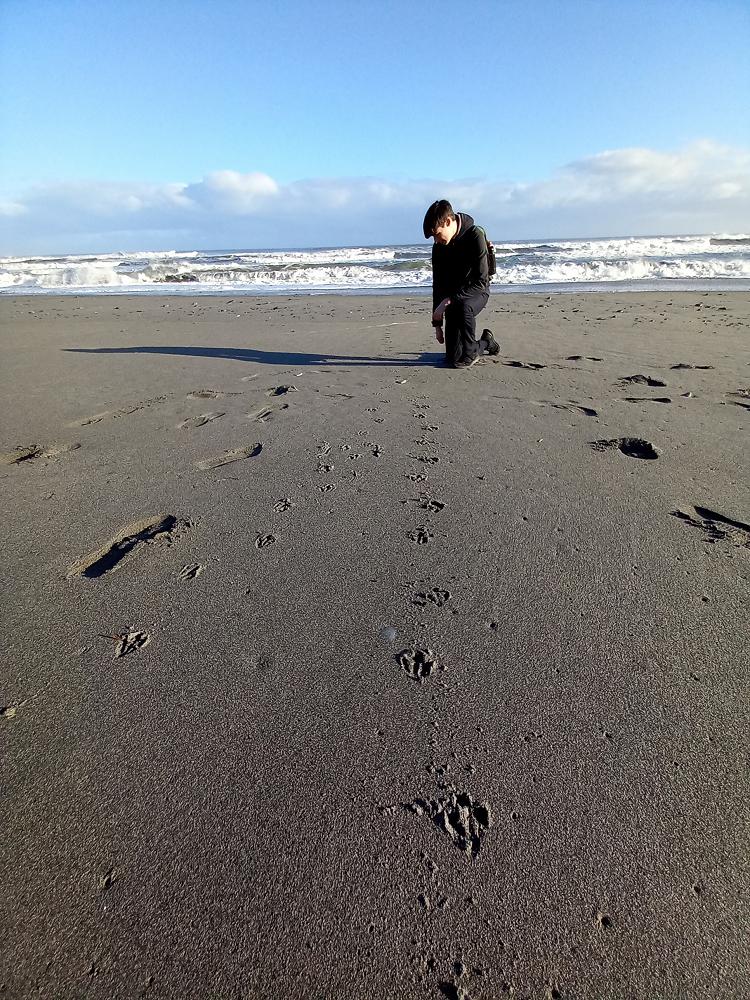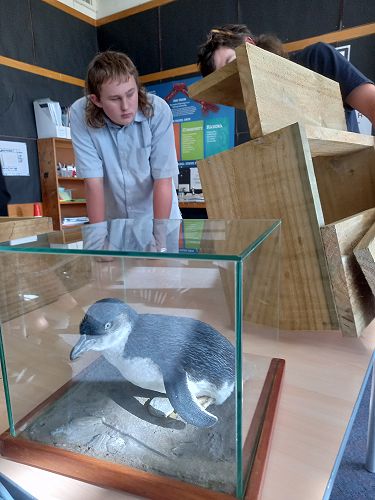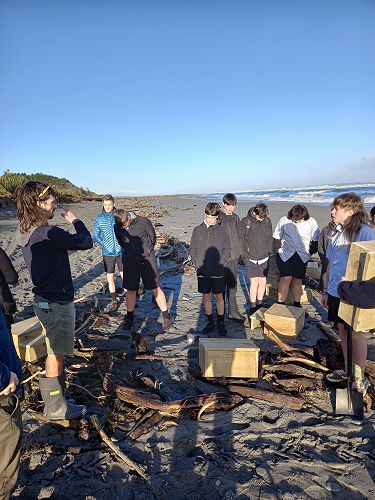
Future Sustainability.
The Year 10 class called Future Sustainability is new at Greymouth High School for 2022. Rhys Nolan pictured above examining the many little blue penguin tracks on Camerons Beach.
Students learn about what sustainability means (looking at the four aspects of: Environmental sustainability, Social sustainability, Cultural sustainability, Economic sustainability- so its not just about the cute animals but how do we work to make sure people/ cultures still meet their needs etc...). From there the students studied a local taonga species such as inanga, peka peka, etc. and then they voted on one to take action for and the little blue won! We then engaged with the West Coast Penguin Trust who came and presented us the issues etc which led to the students deciding on three courses of action.
1. To build and place nesting boxes as their habitat is threatened due to coastal erosion etc.
2. To run a bit of an education campaign including social media and letters to houses along the local coastline to inform about the risks from dogs etc.
3. Fundraise to contribute funds to the West Coast Penguin Trust as they rely on donations to do their work. The students have led this project and made the decisions together a long the way. There is a sausage sizzle planned for next term.
While studying the lovely little blue penguins, we’ve also learnt more unfortunate facts. You may have seen in the news recently that kororā have been struggling to survive due to climate change and there are predictions that these cute little characters will be extinct within twenty years. We also know that the two most immediate life risks for the penguins are dogs and vehicles.
Dogs are the second highest cause of death for our little blue penguins after vehicles, making up 21% of the little blue penguins’ deaths on the coast. Although it might not seem like a high number in percentage terms it certainly leaves a huge impact on the number of penguins we have left. Tragically at least 80 penguins were killed by dogs on the coast between 2006 and 2019, the latest figures available. So, if you own a dog or have friends with dogs, we’re asking you to share this information.
As a dog owner, next time you take your dog on a walk near the coast where the penguins may be nesting, please try to be mindful that penguins may be nearby and ideally keep your dog on a lead unless under very close verbal control on the beach. Even more important is making sure they don’t go out at night or early before the sun comes up without any supervision. Little blue penguins could be coming and going between their nests and the sea anytime between dusk and dawn, but a sick penguin could be on the beach at any time of night or day.
The last thing we ask you to do is try to drive safely and a bit slower during dark hours to protect your safety as well as the blue penguin’s.
Pictured below left Reed Amtman working with Ranger Linden Brown, from the West Coast Peguin Trust, constructing a nesting box and right, Linden making a plan with students for placing the nesting boxes.
Gallery


